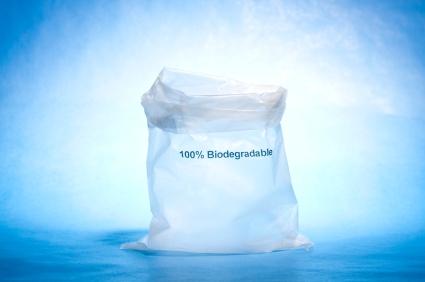 The US Federal Trade Commission recently announced enforcement actions on several environmental marketing claims addressing biodegradable plastics. This is part of the FTC’s program to ensure compliance with the agency’s revised Green Guides. The Guides enable businesses to market their products accurately, providing guidance as to what constitutes misleading environmental claims.
The US Federal Trade Commission recently announced enforcement actions on several environmental marketing claims addressing biodegradable plastics. This is part of the FTC’s program to ensure compliance with the agency’s revised Green Guides. The Guides enable businesses to market their products accurately, providing guidance as to what constitutes misleading environmental claims.
The FTC files a complaint on the District Court of Columbia against Ohio-based ECM Biofilms Inc, which allegedly markets its additives, under the trade name MasterBatch Pellets, to make plastic products biodegradable claiming that the plastic products with the additives will break down in nine months to five years in nearly all landfills or “wherever else they may end up.” ECM also issues its own Certificates of Biodegradability of Plastic Products, according to the FTC.
The company reportedly violates the FTC Act with the following misleading claims:
- Plastics with ECM additives are biodegradable and will completely break down within a reasonably short period of time after customary disposal
- Plastics with ECM additives are biodegradable in a landfill
- Plastics with ECM additives are biodegradable in a stated qualified timeframe
- Various scientific tests prove ECM’s biodegradability claims
The FTC said the notice order attached to the complaint would prohibit ECM from engaging in each violation alleged in the complaint unless the claims are true and supported by competent and reliable scientific evidence. The case proceeding is schedule to begin on June 18, 2014.
ECM BioFilms put out a press release stating their intent to defend itself against the FTC administrative complaint.
Several customers of ECM as well as those who have been using additives to make traditional plastics biodegradable sourced from other companies have also received notices of FTC complaints.
- Seattle, Washington-based American Plastic Manufacturing was an ECM customer until December 2012. APM’s marketing materials claimed that its products such as plastic shopping bags were biodegradable based on the used of additives sold by ECM.
- Massachusetts-based CHAMP was also an ECM customer and sold plastic golf tees that are claimed to be biodegradable using the ECM additives.
- Massachusetts-based Clean Choice Housewares was a customer of an additive called Eco Pure manufactured by Bio-Tec Environmental. Clear Choice claims its reusable plastic food storage containers (marketed as Farberware EcoFresh) are “quickly biodegradable in landfills” based on the Eco Pure additive used.
- Illinois-based Carnie Cap Inc. has incorporated an additive called Eco-One manufactured and marketed by Ecologic into its plastic rebar cap covers. Carnie Cap claims that the caps are 100% biodegradable with no qualification attached to the claim.
 Another company that received an FTC complaint is Michigan-based AJM Packaging Corporation, which manufactures paper products such as paper plates, cups, bowls, napkins and bags. AJM reportedly made environmental beneficial claims that a number of its paper products were biodegradable, compostable or both, and that they will biodegrade within one year in a landfill, as well as compost in a timely manner in a home composting pile. This is despite a 1994 FTC order that prohibited the company from making unsupported green claims for its paper plates and bags.
Another company that received an FTC complaint is Michigan-based AJM Packaging Corporation, which manufactures paper products such as paper plates, cups, bowls, napkins and bags. AJM reportedly made environmental beneficial claims that a number of its paper products were biodegradable, compostable or both, and that they will biodegrade within one year in a landfill, as well as compost in a timely manner in a home composting pile. This is despite a 1994 FTC order that prohibited the company from making unsupported green claims for its paper plates and bags.
AJM was required to pay a $450,000 civil penalty for violating the 1994 consent order that barred it from marketing its products with claims of degradability without reliable scientific evidence to substantiate the claims. The FTC can seek additional penalties if AJM violates FTC’s new order reflecting the revised Green Guides in the future. AJM reportedly agreed to stop making unsubstantiated claims in settling the FTC’s current complaint.






One response to “FTC cracks down biodegradable plastic claims”
What about the OXO claims regarding biodegradation?